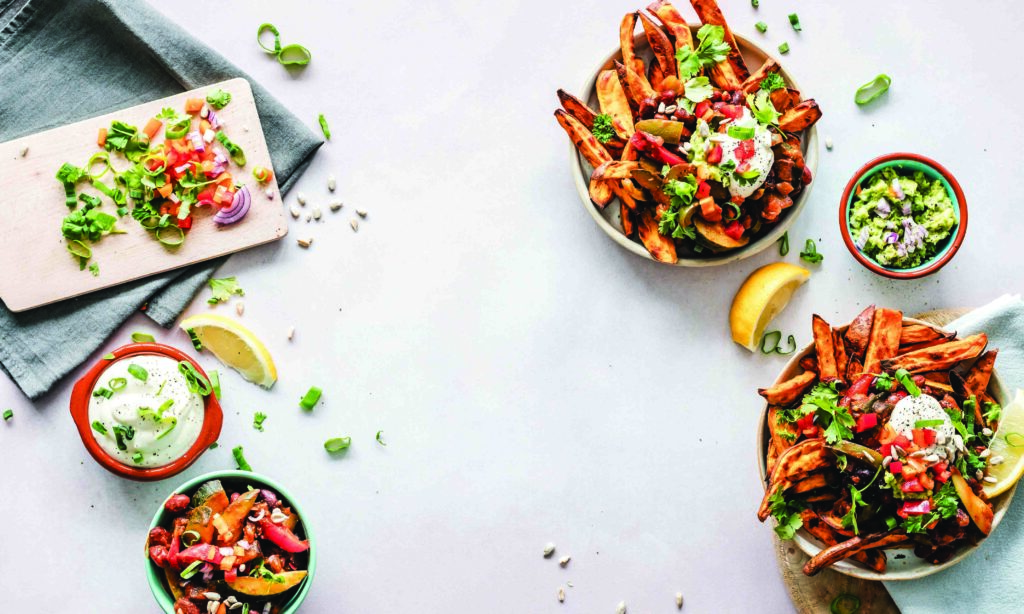Advertisement
The Truth About Heart Health
We’ve discovered a lot in just a few years, and it’s been shocking—but also empowering.

The last decade has seen a revolution in our understanding of heart health. Saturated fat? It’s not necessarily the villain we all thought it was. And there are new heart-health heroes in town too: our gut flora. Our bacterial buddies aren’t just for digesting food; they’ve got a key role in cardiovascular function.
Turns out there’s a lot about heart health that’s a little surprising, but also very promising.
Advertisement
What we got wrong
While high levels of blood cholesterol are seen as contributors to cardiovascular disease, perspectives on dietary fats are shifting. Saturated fats have long been demonized as a major cause of atherosclerosis (narrowing of the arteries due to plaque buildup), but recent studies of foods rich in saturated fats, such as avocado and coconut oil, demonstrate little cause for concern.
Why are decades of public messaging being turned on their collective head? Saturated fats are commonly found in processed foods, which are an abundant source of calories and inflammatory trans fats. It may be a case of guilt by association—the processed food rather than the saturated fat may have been the culprit all along.
In addition, a jarring revelation in the revered Journal of the American Medical Association recently disclosed that the role of sugar in cardiovascular disease may have been downplayed through industry-funded research.
All in all, it looks like it’s misguided to brand saturated fats as the archenemy of the heart.
Advertisement
What we’ve learned
The Mediterranean diet is the most studied dietary approach for heart health. This plan is a flexible dietary pattern that endorses unprocessed plant-based foods and fats, fortifies the move away from low-fat diets, and trumpets nuts and olive oil as champions of cardiovascular health.
4 heart-health supplements
In addition to eating a healthy diet, exercising, and managing your weight, these supplements may provide some benefit.
1. Berberine
Berberine can increase HDL (good) cholesterol while decreasing LDL (bad) cholesterol. It may also have an impact on waist circumference, blood pressure, triglycerides, and insulin resistance.
2. Omega-3 fatty acids
Eicosapentaenoic acid (EPA) and docosahexaenoic acid (DHA) may lower blood pressure and reduce the risk of a second heart attack. You can find vegan versions of these commonly fish-derived supplements.
3. Coenzyme Q10 (CoQ10)
This antioxidant nutrient has long been used as part of protocols for those with heart failure; it promotes reductions in blood pressure.
4. Magnesium
Magnesium deficiency is associated with higher blood pressure, coronary artery calcification, and risk of death from cardiovascular disease.
In addition, fascinating new research highlights a route to heart health through the gut microbiome. As whole grains and fermented foods influence our internal ecosystem for the better, choosing them may provide additional benefits to our heart and circulation. Other research shows plant-based diets are associated with a better and more stable microbiome, promoting increased populations of bacterial species that protect cardiovascular health!
Advertisement
What we got right
We’ve known for a while that regular activity has meaningful effects on risk factors for cardiovascular disease. Exercise can decrease blood pressure, improve insulin sensitivity, increase “good” high-density lipoprotein (HDL) cholesterol, elevate our mood, and decrease our risk of dying from heart disease. No drug can claim all these remarkable effects.
American guidelines for adults recommend 150 to 300 minutes of moderate-intensity aerobic exercise or 75 to 150 minutes of vigorous-intensity aerobic exercise each week—or an equivalent combo of the two—and doing muscle strengthening activities on two or more days a week. Moderate-intensity activity increases respiration and heart rate and could include brisk walking, swimming, or biking. Vigorous-intensity activities should leave you sweaty and breathing rapidly and include running and many team sports.
While the guidelines may be clear, the execution is the stumbling block for most of us.
Advertisement
What we don’t emphasize enough
Sleep is an underappreciated supporter of heart function. For people who eat well, exercise, and don’t smoke, getting seven hours of sleep per night further decreases cardiovascular risk. Effective stress management techniques can bring additional benefits.
Advertisement
What the jury is still out on
A wide range of wearables can track and record every aspect of your daily activity, food intake, and biometrics. But are these watches, clips, and pendants doing you any favors or just giving you less money to see the 88th Star Wars film?
As far as cardiovascular risk factors are concerned, people wearing activity trackers take more steps and feel more motivated to exercise. Other studies link wearables and online food journaling with improved weight loss.
Unfortunately, the novelty tends to wear off after a while, along with the activity levels. Engagement with an app can help keep interest going, but the long-term effects of wearables on cardiovascular health still remain to be seen.
Advertisement
What’s complicated
The relationship of alcohol to heart health epitomizes the adage of “everything in moderation.” Low to moderate intake (up to one drink a day for all women and for men over 65; up to two drinks a day for men 65 and younger) is associated with improved blood cholesterol and reduced risk of cardiac mortality. Less is more for stroke incidence, where risk is lowest with less than a drink per day. While red wine may be packed with blood-boosting antioxidants, overindulgence can increase cardiac risk by contributing to obesity and increased blood pressure.
Our understanding of the best steps to take for optimal heart health is still evolving. But it’s clear that by eating the right foods, prioritizing healthy gut flora, staying active, and getting a good night’s sleep, you’ll be taking even more than 10,000 steps in the right direction.
Risk factors you can change
You may not be able to change your age, sex at birth, or family history, but you could influence
- elevated blood pressure
- low-density lipoprotein (LDL) cholesterol
- weight
- insulin resistance and diabetes
- lack of activity
- smoking
What about that scary study on plant-based diets and strokes?
You’ve probably heard about a new study in the British Medical Journal that linked vegan and vegetarian diets with a higher risk of stroke. Uh-oh. Should we all give up on plant-based eating for the sake of our cardiovascular health? No, say experts—and there are a few reasons why.
One is that this same study—along with a number of previous studies—found that vegetarians and vegans have a lower risk of heart disease. Plus, other research supports eating more fruits and veggies and less meat to reduce stroke risk factors.
Another reason is that this was an observational study, meaning it didn’t prove that plant-based diets cause a higher incidence of strokes. It simply highlighted an association. The authors stressed that more research is needed and that future studies should examine the effects of specific foods and nutrients on cardiovascular risk factors. Adequate vitamin B12 levels, for example, may play an important role in stroke risk management.
In the meantime, those on a plant-based diet should increase or supplement with nutrients they may be low on, such as vitamin B12 or omega-3 fatty acids.
-alive editorial
Gillian Flower, ND, is a step-tracking, fiber-eating, olive oil-loving writer and naturopathic doctor.
She supports patients with cancer through her practice at the Ottawa Integrative Cancer Centre.
A version of this article was published in the January/February issue of alive USA with the title “The Truth About Heart Health.”





